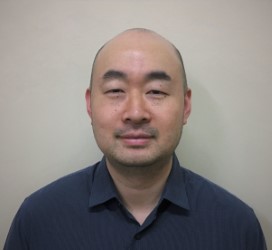
BSc(Hons), BA(Hons), MA, PhD
College of Humanities, Arts and Social Sciences
Thesis ‘The Philosophy of Person-Centred Care: Promoting and Maintaining Continuity of the Self’
Here, he shares his experience, reflections, and insights;
When I embarked on my PhD, I was essentially performing an experiment on myself. I knew that while I had some knowledge and experience, which I could bring to bear on my PhD, I would have to learn a lot as I go, and deal with unexpected twists and turns.
I also knew I would be juggling my PhD with various other personal projects and commitments so there was the risk that I could drop the ball on any of those projects, including my PhD.
Perhaps the most important thing I knew was that I might fail. I took all of this on board with me and embarked on my journey.
Winning the award means two things to me. Firstly, it represents what I can achieve if I make a fearless and concerted effort to pursue a goal.
Secondly, it is vindication for having the audacity to not let that which has held me back for so much of my youth and early adulthood, fear.
A highlight for me was meeting and connecting with like minded people (academic staff and students), with whom I had many great conversations (and the occasional debate), and being able to help each other out in whatever way possible.
I am proud in knowing that my research makes a contribution to existing scholarship and has the potential to further our understanding of ourselves, our world, and maybe improve it.
PhDs and where are you now;
My advice for current students is to try and maintain momentum and not succumb to distraction or procrastination.
A PhD project is not something from which you can just take a brief hiatus and then immediately pick up from where you left off (it’s too big!).
If I stopped working on my PhD for a few days or more, I found that it took a long time to get back on track.
A trick I played on myself when I felt like procrastinating was to tell myself that I could continue procrastinating on the condition that I do at least the tiniest amount of PhD related work first (this could simply be writing or correcting a sentence in my thesis, or reading the abstract of a paper).
More often than not, one tiny bit of work would lead to another, and before I knew it, I was fully immersed in thesis writing or reading for the next hour or more. It was essentially a tactic to distract myself from procrastination.
My advice for prospective students is to spend a lot of time thinking about one’s motivations for doing a PhD.
Why do you want to do one? What do you expect to gain out of it? Are you in a situation in your life where it is feasible?
Be idealistic in your responses but be realistic and true to yourself. If you are satisfied with your motivations for doing a PhD, make the commitment and do it without fear.
After I completed my undergraduate studies at University, I spent a few years working in industry.
The role that I performed brought up a lot of interesting research questions and ideas.
When that role came to an end, it was a chance for me to formally pursue those research questions and ideas through a PhD.
However, my general motivation for doing a PhD trace their origin to when I first began my studies as an undergraduate.
I was young, naive, nervous, anxious, uncertain, and intimidated, yet at the same time I felt a tremendous sense of wonderment and empowerment.
The University struck me as a very special place where everyone had an opportunity to learn and develop themselves.
My PhD represents the aspirations I had as an undergraduate student to fully embrace knowledge and intellectual pursuit.
I am hoping to continue doing my research, to continue learning and contributing to knowledge.
Part of contributing to knowledge is to teach, and it was only through doing a PhD that I had the opportunity to teach at University.
Learning and teaching are two sides of the same coin and my passion for research goes hand in hand with my passion for teaching.

